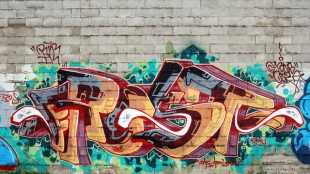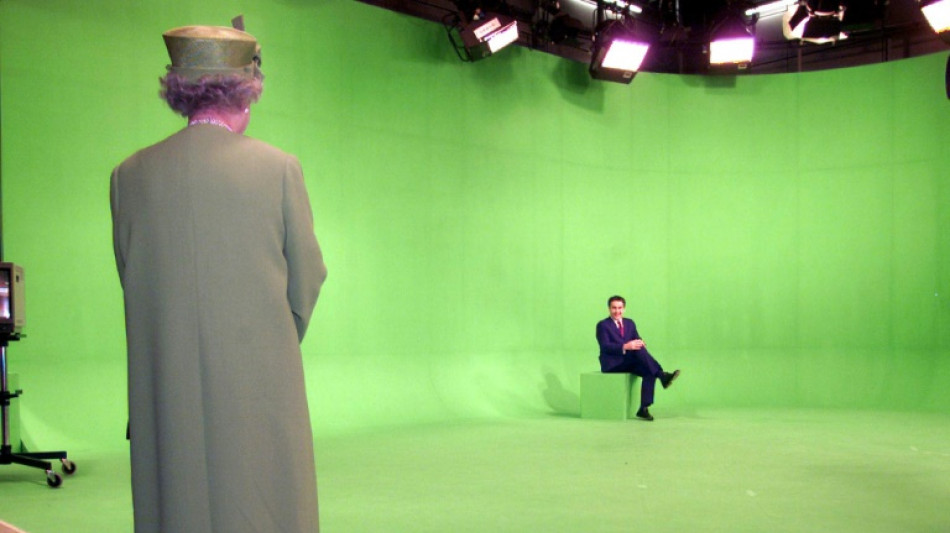
-
 AI chatbots give bad health advice, research finds
AI chatbots give bad health advice, research finds
-
Iran steps up arrests while remaining positive on US talks
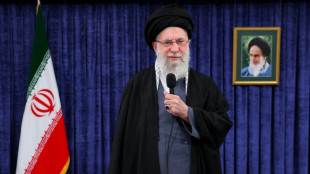
-
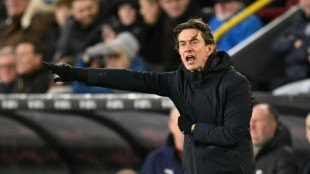 Frank issues rallying cry for 'desperate' Tottenham
Frank issues rallying cry for 'desperate' Tottenham
-
South Africa pile up 213-4 against Canada in T20 World Cup
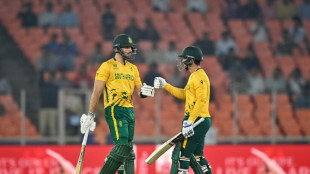
-
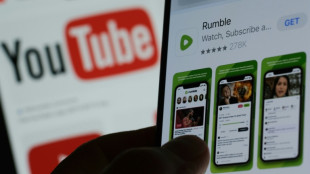 Brazil seeks to restore block of Rumble video app
Brazil seeks to restore block of Rumble video app
-
Gu's hopes of Olympic triple gold dashed, Vonn still in hospital

-
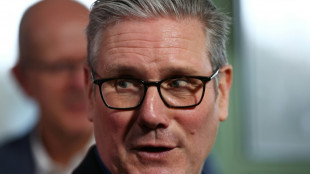 Pressure mounts on UK's Starmer as Scottish Labour leader urges him to quit
Pressure mounts on UK's Starmer as Scottish Labour leader urges him to quit
-
Macron backs ripping up vines as French wine sales dive
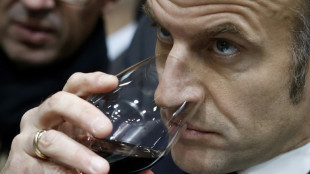
-
 Olympic freeski star Eileen Gu 'carrying weight of two countries'
Olympic freeski star Eileen Gu 'carrying weight of two countries'
-
Bank of France governor Francois Villeroy de Galhau to step down in June
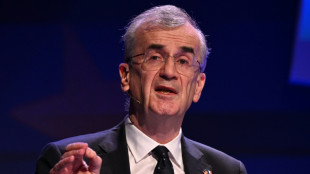
-
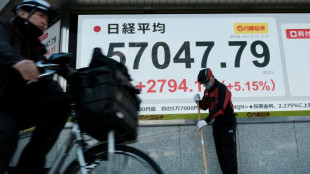 Tokyo stocks strike record high after Japanese premier wins vote
Tokyo stocks strike record high after Japanese premier wins vote
-
'I need to improve', says Haaland after barren spell

-
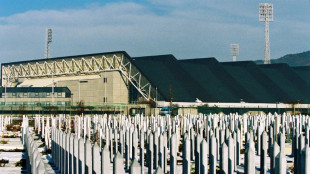 Italian suspect questioned over Sarajevo 'weekend snipers' killings: reports
Italian suspect questioned over Sarajevo 'weekend snipers' killings: reports
-
Von Allmen at the double as Nef seals Olympic team combined gold

-
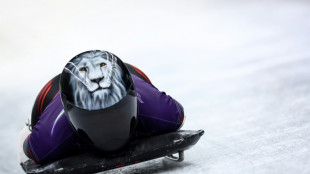 Newlyweds, but rivals, as Olympic duo pursue skeleton dreams
Newlyweds, but rivals, as Olympic duo pursue skeleton dreams
-
Carrick sees 'a lot more to do' to earn Man Utd job
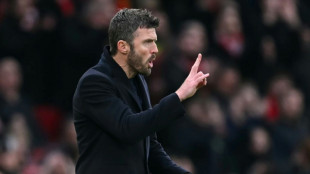
-
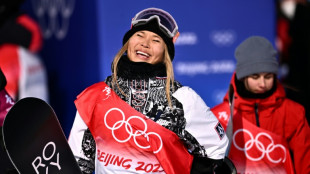 Olympic star Chloe Kim calls for 'compassion' after Trump attack on US teammate
Olympic star Chloe Kim calls for 'compassion' after Trump attack on US teammate
-
'All the pressure' on Pakistan as USA out to inflict another T20 shock

-
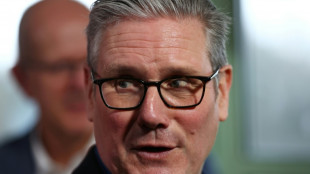 Starmer vows to remain as UK PM amid Epstein fallout
Starmer vows to remain as UK PM amid Epstein fallout
-
Howe would 'step aside' if right for Newcastle
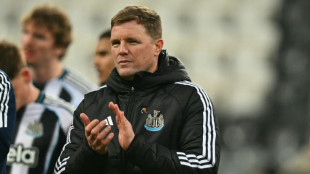
-
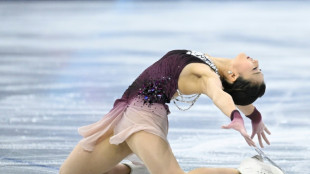 Sakamoto wants 'no regrets' as gold beckons in Olympic finale
Sakamoto wants 'no regrets' as gold beckons in Olympic finale
-
What next for Vonn after painful end of Olympic dream?

-
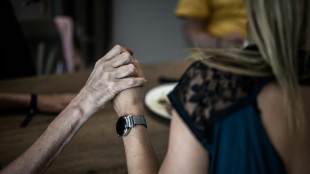 Brain training reduces dementia risk by 25%, study finds
Brain training reduces dementia risk by 25%, study finds
-
Gremaud ends Gu's hopes of Olympic treble in freeski slopestyle
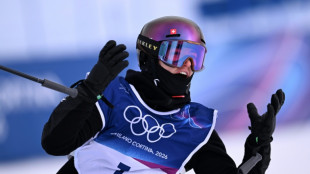
-
 Shiffrin and Johnson paired in Winter Olympics team combined
Shiffrin and Johnson paired in Winter Olympics team combined
-
UK's Starmer scrambles to limit Epstein fallout as aides quit
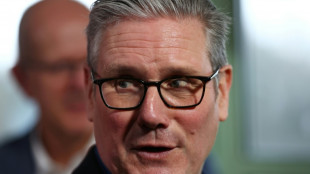
-
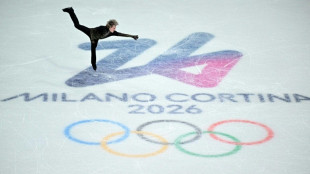 US skater Malinin 'full of confidence' after first Olympic gold
US skater Malinin 'full of confidence' after first Olympic gold
-
Sydney police pepper spray protesters during rallies against Israeli president's visit
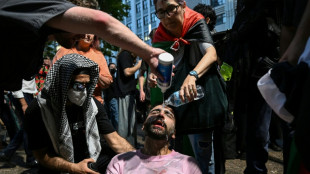
-
 Israel says killed four militants exiting Gaza tunnel
Israel says killed four militants exiting Gaza tunnel
-
Franzoni sets pace in Olympic team combined

-
 Captain's injury agony mars 'emotional' Italy debut at T20 World Cup
Captain's injury agony mars 'emotional' Italy debut at T20 World Cup
-
Family matters: Thaksin's party down, maybe not out
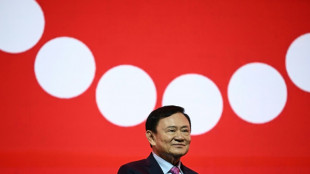
-
 African players in Europe: Ouattara fires another winner for Bees
African players in Europe: Ouattara fires another winner for Bees
-
Pressure grows on UK's Starmer over Epstein fallout
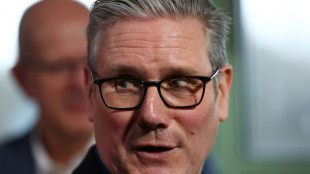
-
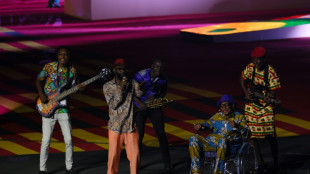 Music world mourns Ghana's Ebo Taylor, founding father of highlife
Music world mourns Ghana's Ebo Taylor, founding father of highlife
-
HK mogul's ex-workers 'broke down in tears' as they watched sentencing
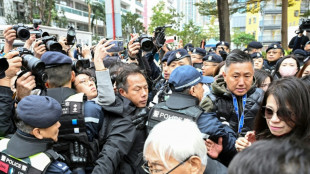
-
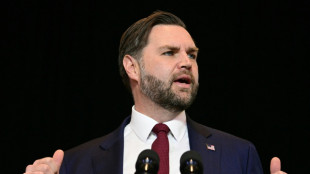 JD Vance set for Armenia, Azerbaijan trip
JD Vance set for Armenia, Azerbaijan trip
-
Sydney police deploy pepper spray as Israeli president's visit sparks protests
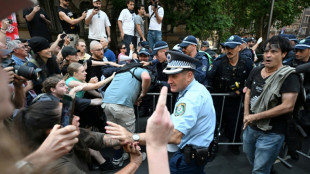
-
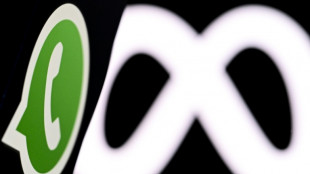 EU warns Meta it must open up WhatsApp to rival AI chatbots
EU warns Meta it must open up WhatsApp to rival AI chatbots
-
Scotland spoil Italy's T20 World Cup debut with big win

-
 Israeli president says 'we will overcome evil' at Bondi Beach
Israeli president says 'we will overcome evil' at Bondi Beach
-
Munsey leads Scotland to 207-4 against Italy at T20 World Cup

-
 Japan restarts world's biggest nuclear plant again
Japan restarts world's biggest nuclear plant again
-
Bangladesh poll rivals rally on final day of campaign

-
 Third impeachment case filed against Philippine VP Duterte
Third impeachment case filed against Philippine VP Duterte
-
Wallaby winger Nawaqanitawase heads to Japan

-
 Thailand's Anutin rides wave of nationalism to election victory
Thailand's Anutin rides wave of nationalism to election victory
-
Venezuela's Machado says ally kidnapped by armed men after his release

-
 Maye longs for do-over as record Super Bowl bid ends in misery
Maye longs for do-over as record Super Bowl bid ends in misery
-
Seahawks' Walker rushes to Super Bowl MVP honors

| CMSC | -0.05% | 23.561 | $ | |
| RYCEF | 2.65% | 17.34 | $ | |
| NGG | -0.27% | 87.82 | $ | |
| BCC | -0.41% | 90.66 | $ | |
| GSK | -1.94% | 59.085 | $ | |
| SCS | 0.12% | 16.14 | $ | |
| RIO | 2.86% | 96.16 | $ | |
| RELX | -0.09% | 29.355 | $ | |
| JRI | -0.93% | 12.85 | $ | |
| RBGPF | 0.12% | 82.5 | $ | |
| CMSD | -0.17% | 23.91 | $ | |
| VOD | 2.14% | 15.44 | $ | |
| BCE | 1.92% | 25.57 | $ | |
| BTI | -2.71% | 61.145 | $ | |
| AZN | -1.42% | 190.335 | $ | |
| BP | 0.4% | 39.165 | $ |

Was Queen Elizabeth II a media-savvy monarch?
Queen Elizabeth II's coronation -- broadcast live for eight straight hours by the BBC in 1953 -- was the first major event of the television age.
Six decades later, aged 86, she showed a surprising gift for comedy, joining "James Bond" star Daniel Craig for a sketch in which both appeared to parachute into the opening ceremony of the 2012 London Olympics.
And she topped British television ratings last year with her final carefully choreographed Christmas message, a tradition she began in 1957.
But did that mean the queen -- who often floated above the criticism some of her family attracted -- could be considered media-savvy?
Royal biographers are divided on how much mental space the queen gave to the media, which she kept at a respectful distance for the seven decades of her reign.
She may officially have been the first British royal to embrace social platforms, with 12.3 million Instagram followers, though few believe she ever concerned herself much with her online profile.
- 'Real acting' -
But she knew how to play a role.
Frank Cottrell-Boyce, who co-wrote the action hero sketch at the Olympics, as well as one with beloved fictional character Paddington Bear for her Platinum Jubilee this year, on Friday hailed her "brilliant" comic timing.
"That's real acting going on there. Paddington isn't really in the room," he told the BBC of the latter skit, in which the queen claimed she kept a marmalade sandwich in her handbag at all times.
She decided early on to embrace mass media, historian Robert Lacey said, following the example of her grandfather George V.
The queen saw radio and television as a "way to talk to directly" to her subjects, he told AFP.
Her first radio broadcast came at just 14 when she addressed British children at the start of World War II.
Over time, her Christmas speeches evolved from rather stilted affairs in a ballgown to highly sophisticated fireside chats -- her office or sitting rooms carefully dressed with family photos to reflect her theme.
- 'Innate reticence' -
But the queen was less than enthusiastic about letting the cameras behind the curtain to peek at the Windsors' private lives.
Royal biographers like Andrew Morton -- whose study of her strained relationship with her sister Margaret appeared last year -- suspect the queen's innate reticence didn't help her complicated ties to the media.
It was the family themselves that made the first breach when her husband Prince Philip invited the BBC into the Palace in 1969 to film the fly-on-the-wall documentary, "Royal Family".
The queen's press secretary at the time, William Heseltine, admitted in 2019 that "the queen was a reluctant convert, but became much more aware of the possibilities and was prepared to participate when it came to actual filming".
The documentary was replete with awkward scenes of family barbecues and breakfasts, the royals using Tupperware, and Philip wondering if the queen's father was "mad".
The naturalist David Attenborough, then a top BBC executive, even warned it risked "killing the monarchy".
The film has not been shown since the 1970s, reportedly at the request of the Palace, and has been taken down every time it has appeared on YouTube.
- 'Mystique of monarchy' -
Despite that experience, historian Morton said the royal family "hitched their wagon to television in the 1980s... and so swapped the mystique of monarchy for what you might call the shallow applause of the studio audience".
The author said the Palace has always tried to portray the royal family "like a swan, gliding beautifully along the surface of British society" despite the dramas going on internally.
Their press office, known as "the Abominable No Man because they always used to say 'no comment'... defined the agenda," he told the US public broadcaster PBS.
"They defined what was private and what was public and they would move it whenever they wished."
Rather than undermining the institution, the British anti-monarchy group Republic has long claimed that the media and the royals have a symbiotic relationship.
"There is a huge disconnection between the media's portrayal of public attitudes (towards the royals) and how people actually feel," its head Graham Smith said.
He pointed to a poll saying most Britons were "not interested" in the queen's Platinum Jubilee celebrations earlier this year.
"If this is the public response to a celebration of her reign, then the monarchy will be in serious trouble" with King Charles, he added.
J.Oliveira--AMWN

